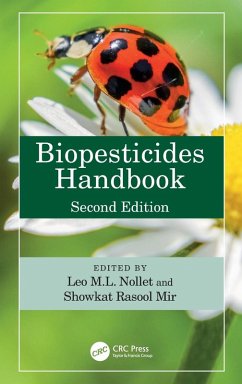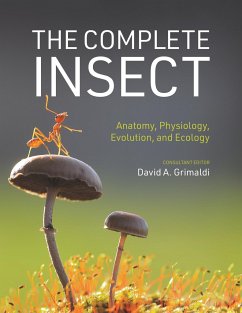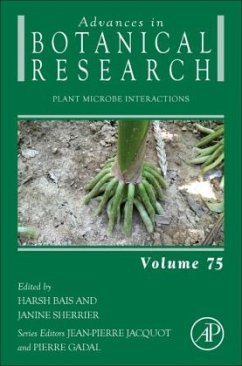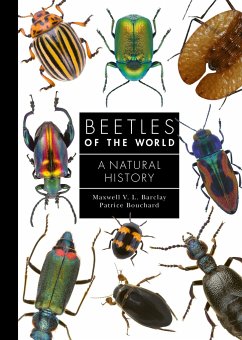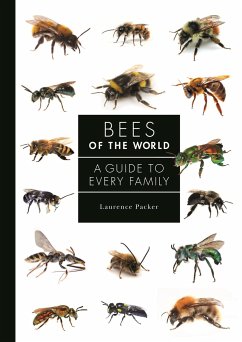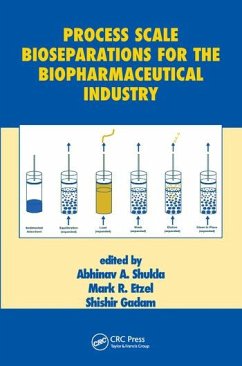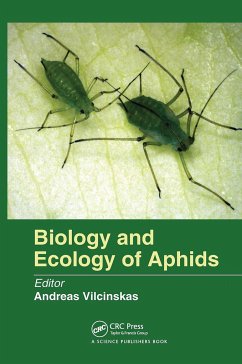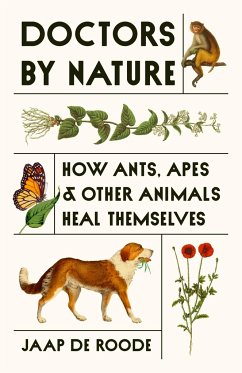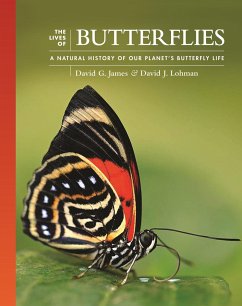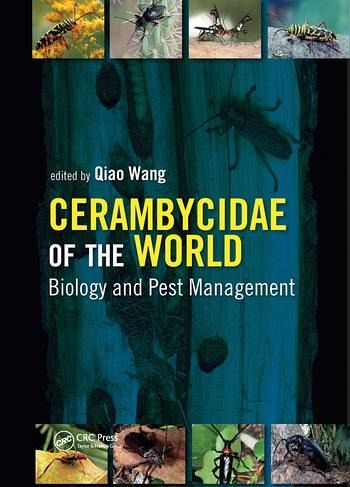
Cerambycidae of the World
Biology and Pest Management
Herausgegeben: Wang, Qiao
Versandkostenfrei!
Versandfertig in 6-10 Tagen
53,99 €
inkl. MwSt.
Weitere Ausgaben:

PAYBACK Punkte
27 °P sammeln!
Wang has gathered contributions from an impressive cohort of the world's most respected experts on longhorned beetles. Chapters review both basics of cerambycid taxonomy, mor- phology, and behavior (feeding, reproduction, and chemical ecology), as well as more applied concerns, such as laboratory rearing, pest control, and bio- security. Overall, this volume is a valuable contribution to the literature as a "one-stop shop" for readers seeking a comprehensive overview of longhorned beetles... It represents a tremendous effort on the part of Wang and the authors, and has resulted in a much-neede...
Wang has gathered contributions from an impressive cohort of the world's most respected experts on longhorned beetles. Chapters review both basics of cerambycid taxonomy, mor- phology, and behavior (feeding, reproduction, and chemical ecology), as well as more applied concerns, such as laboratory rearing, pest control, and bio- security. Overall, this volume is a valuable contribution to the literature as a "one-stop shop" for readers seeking a comprehensive overview of longhorned beetles... It represents a tremendous effort on the part of Wang and the authors, and has resulted in a much-needed update to the literature. This volume is the only work of its kind available at this time, and is a valuable addition to the library of any scientist studying wood-boring beetles.
- Ann M. Ray, Biology, Xavier University, Cincinnati, Ohio in The Quarterly Review of Biology, Volume 94, 2019
There are more than 36,000 described species in the family Cerambycidae in the world. With the significant increase of international trade in the recent decades, many cerambycid species have become major plant pests outside their natural distribution range, causing serious environmental problems at great cost. Cerambycid pests of field, vine, and tree crops and of forest and urban trees cost billions of dollars in production losses, damage to landscapes, and management expenditures worldwide.
Cerambycidae of the World: Biology and Pest Management is the first comprehensive text dealing with all aspects of cerambycid beetles in a global context. It presents our current knowledge on the biology, classification, ecology, plant disease transmission, and biological, cultural, and chemical control tactics including biosecurity measures from across the world.
Written by a team of global experts, this book provides an entrance to the scientific literature on Cerambycidae for scientists in research institutions, primary industries, and universities, and will serve as an essential reference for agricultural and quarantine professionals in governmental departments throughout the world.
- Ann M. Ray, Biology, Xavier University, Cincinnati, Ohio in The Quarterly Review of Biology, Volume 94, 2019
There are more than 36,000 described species in the family Cerambycidae in the world. With the significant increase of international trade in the recent decades, many cerambycid species have become major plant pests outside their natural distribution range, causing serious environmental problems at great cost. Cerambycid pests of field, vine, and tree crops and of forest and urban trees cost billions of dollars in production losses, damage to landscapes, and management expenditures worldwide.
Cerambycidae of the World: Biology and Pest Management is the first comprehensive text dealing with all aspects of cerambycid beetles in a global context. It presents our current knowledge on the biology, classification, ecology, plant disease transmission, and biological, cultural, and chemical control tactics including biosecurity measures from across the world.
Written by a team of global experts, this book provides an entrance to the scientific literature on Cerambycidae for scientists in research institutions, primary industries, and universities, and will serve as an essential reference for agricultural and quarantine professionals in governmental departments throughout the world.





